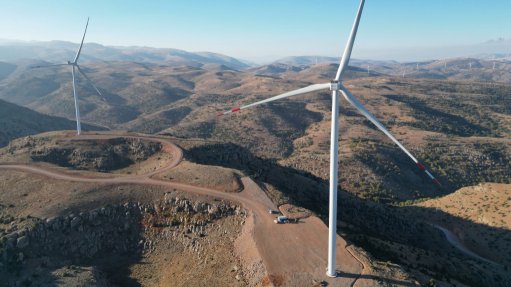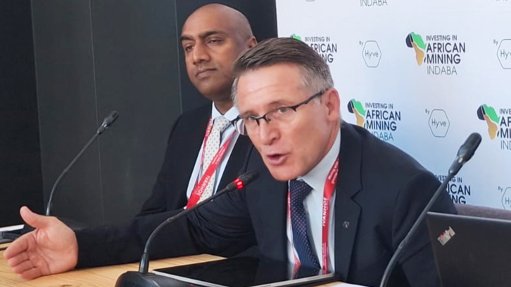Empty chairs diplomacy
It’s been a few weeks since the curtain came down on the seventy-eighth session of the United Nations (UN) General Assembly. Besides the many great speeches that were delivered, one of the takeaways for me was the recurrence of what I noticed at previous gatherings, and that’s the depleted audiences in the auditorium when African leaders take to the podium.
But a disclaimer first: I didn’t watch all the African leaders’ speeches, and neither was I glued to the television screen when it was the turn of their counterparts from other regions to speak. But from the small sample that I watched and subsequent media reports, our leaders travelled all the way to New York for the September 18 to 22 shindig to address empty chairs. This was because large swathes of their would-be audiences – mostly the leaders of developed nations – suddenly felt an urge to be out of the auditorium.
But this urge dissipated when it was the turn of the Joe Bidens of this world or Volodymyr Zelensky, the Ukrainian President, whose country has been under siege from an invading Russian army since February 2022.
Both Biden and Zelensky addressed substantial audiences. But that wasn’t the case with our leaders. I wouldn’t say what they had to say was not worth listening to; they delivered great speeches, except for the purely ahistorical pontifications by Southern African Development Community (SADC) Presidents about Zimbabwe’s being in a sorry state economically because of ‘sanctions’ imposed by Western nations. It’s as if they are not aware that the Zimbabwean economy had been under severe strain long before travel restrictions and other punitive measures were slapped on government and army elites as well as functionaries of the ruling Zanu-PF party in 2001 to induce them to desist from abusing political opponents’ human rights. The Gold Mafia scandal, which came to light only last year and in which Zimbabwe lost billions of greenbacks through massive gold smuggling and money laundering, also seems to reside in the SADC Presidents’ blind spots.
As stated earlier, walk-outs by mostly developed-nation leaders at sessions of the UN General Assembly did not start this year. I noticed them for the first time in 2019.
I also noticed something else this year. Of the leaders of the five nations that have permanent seats on the UN Security Council – China, France, Russia, the UK and the US – only the US’s Biden showed up. I guess even if he did not feel like attending, he would not have had a choice, since his country plays host to the UN headquarters in New York.
I understand why Russia’s Vladimir Putin was a no-show – he has an International Criminal Court warrant of arrest over his head related to the deportation of Ukrainian children to Russia. He would not have dared to set foot in the US, a country that is hostile to his own.
I also kind of understand why China’s Xi Jinping chose to not attend. China doesn’t seem to take kindly to Western-dominated multilateral institutions like the UN. To some extent, this was confirmed by Xi’s stand-in, Vice President Han Zheng, who told the General Assembly: “China opposes hegemonism, power politics, unilateralism and a Cold War mentality. A small number of countries have arbitrarily imposed illegal and unilateral sanctions, severely undermining the harmony and stability of international relations.”
But the absence of UK Prime Minister Rishi Sunak and France’s President Emmanuel Macron was rather surprising. Indeed, Sunak was the first British Prime Minister to miss a session of the UN General Assembly in a decade and, much as I tried, I could not establish why he chose to stay away. As for Macron, I have read somewhere that he thought hosting Britain’s King Charles III and Pope Francis – who visited France at about the same time as the UN General Assembly – was more worthwhile than making the trans-Atlantic trip to New York.
The four no-shows seem to indicate a de-emphasising of the role of the UN. Why then should our leaders humiliate themselves by addressing empty chairs? Like Xi, they must send underlings.
Article Enquiry
Email Article
Save Article
Feedback
To advertise email advertising@creamermedia.co.za or click here
Comments
Announcements
What's On
Subscribe to improve your user experience...
Option 1 (equivalent of R125 a month):
Receive a weekly copy of Creamer Media's Engineering News & Mining Weekly magazine
(print copy for those in South Africa and e-magazine for those outside of South Africa)
Receive daily email newsletters
Access to full search results
Access archive of magazine back copies
Access to Projects in Progress
Access to ONE Research Report of your choice in PDF format
Option 2 (equivalent of R375 a month):
All benefits from Option 1
PLUS
Access to Creamer Media's Research Channel Africa for ALL Research Reports, in PDF format, on various industrial and mining sectors
including Electricity; Water; Energy Transition; Hydrogen; Roads, Rail and Ports; Coal; Gold; Platinum; Battery Metals; etc.
Already a subscriber?
Forgotten your password?
Receive weekly copy of Creamer Media's Engineering News & Mining Weekly magazine (print copy for those in South Africa and e-magazine for those outside of South Africa)
➕
Recieve daily email newsletters
➕
Access to full search results
➕
Access archive of magazine back copies
➕
Access to Projects in Progress
➕
Access to ONE Research Report of your choice in PDF format
RESEARCH CHANNEL AFRICA
R4500 (equivalent of R375 a month)
SUBSCRIBEAll benefits from Option 1
➕
Access to Creamer Media's Research Channel Africa for ALL Research Reports on various industrial and mining sectors, in PDF format, including on:
Electricity
➕
Water
➕
Energy Transition
➕
Hydrogen
➕
Roads, Rail and Ports
➕
Coal
➕
Gold
➕
Platinum
➕
Battery Metals
➕
etc.
Receive all benefits from Option 1 or Option 2 delivered to numerous people at your company
➕
Multiple User names and Passwords for simultaneous log-ins
➕
Intranet integration access to all in your organisation


















